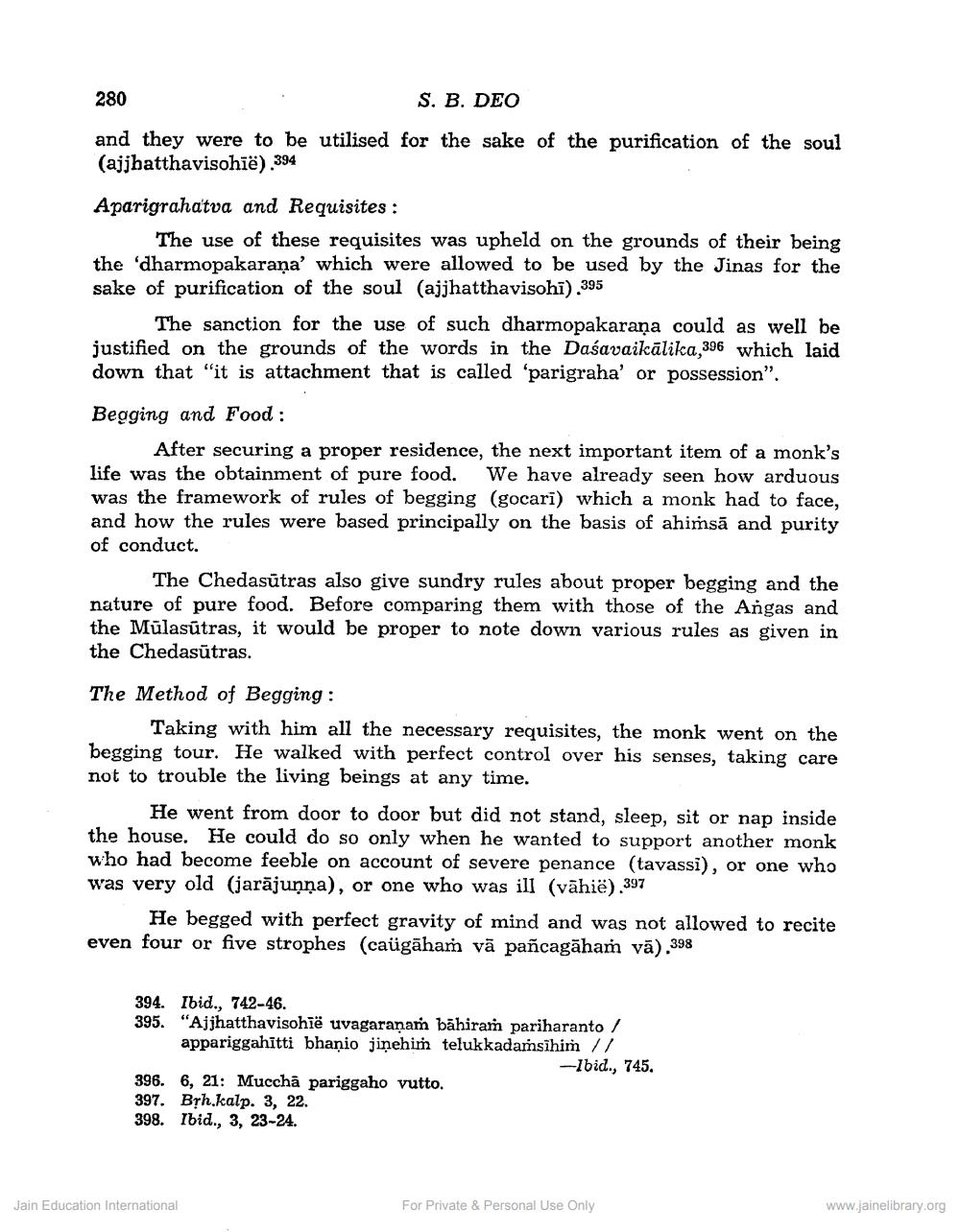________________
280
S. B. DEO
and they were to be utilised for the sake of the purification of the soul (ajjhatthavisohië),394
Aparigrahatva and Requisites:
The use of these requisites was upheld on the grounds of their being the 'dharmopakarana' which were allowed to be used by the Jinas for the sake of purification of the soul (ajjhatthavisohi).385
The sanction for the use of such dharmopakarana could as well be justified on the grounds of the words in the Daśavaikälika,306 which laid down that "it is attachment that is called 'parigraha' or possession".
Begging and Food:
After securing a proper residence, the next important item of a monk's life was the obtainment of pure food. We have already seen how arduous was the framework of rules of begging (gocari) which a monk had to face, and how the rules were based principally on the basis of ahimsa and purity. of conduct.
The Chedasútras also give sundry rules about proper begging and the nature of pure food. Before comparing them with those of the Angas and the Mülasūtras, it would be proper to note down various rules as given in the Chedasūtras.
The Method of Begging:
Taking with him all the necessary requisites, the monk went on the begging tour. He walked with perfect control over his senses, taking care not to trouble the living beings at any time.
He went from door to door but did not stand, sleep, sit or nap inside the house. He could do so only when he wanted to support another monk who had become feeble on account of severe penance (tavassi), or one who was very old (jaräjuņņa), or one who was ill (vähië),307
He begged with perfect gravity of mind and was not allowed to recite even four or five strophes (caugahaṁ vā pañcagaham vā),398
394. Ibid., 742-46.
395. "Ajjhatthavisohië uvagaranamh bähirath pariharanto / appariggahitti bhanio jinehim telukkadamsihim //
-Ibid., 745.
396. 6, 21: Muccha pariggaho vutto.
397. Brh.kalp. 3, 22.
398. Ibid., 3, 23-24.
Jain Education International
For Private & Personal Use Only
www.jainelibrary.org




